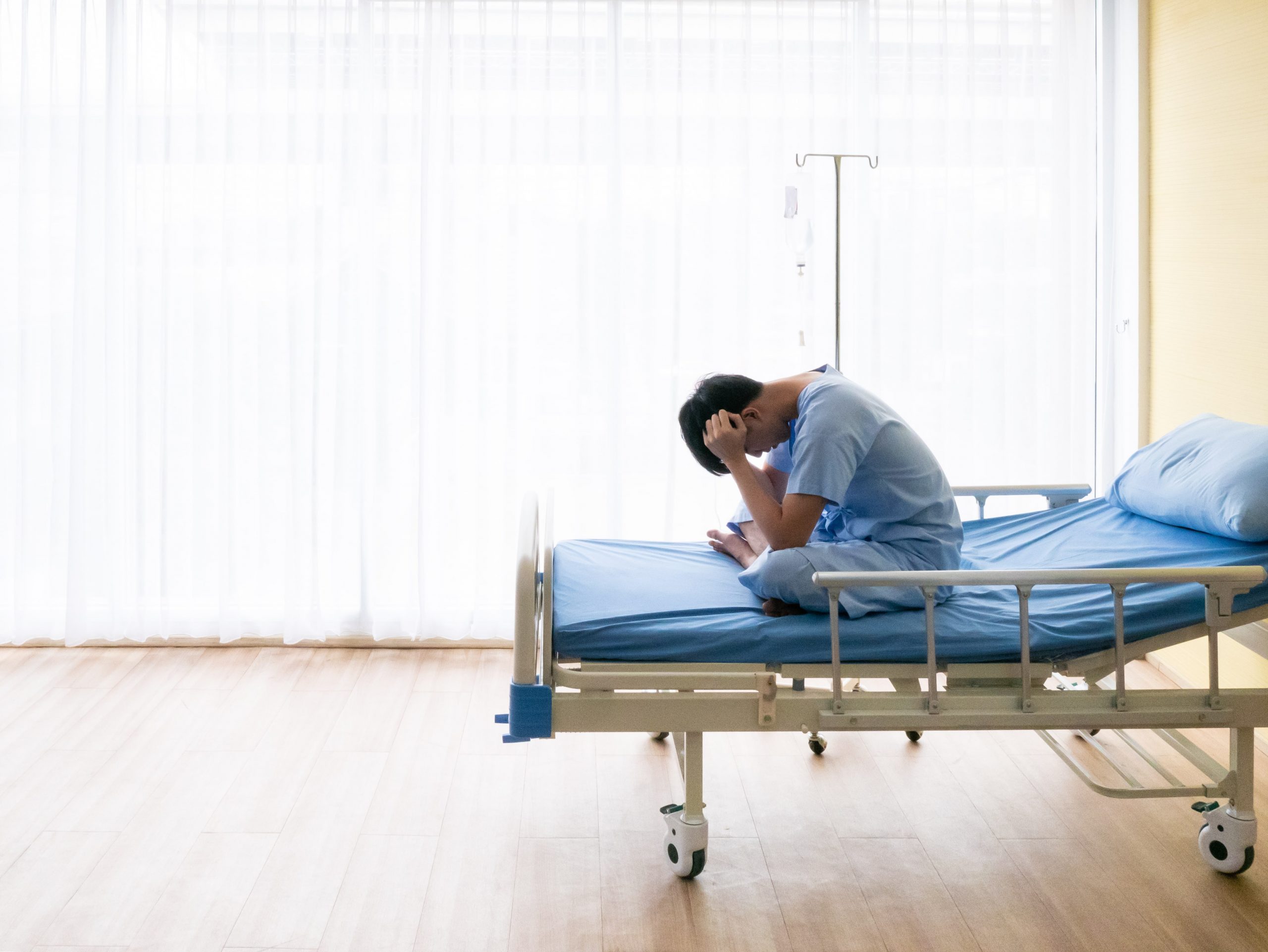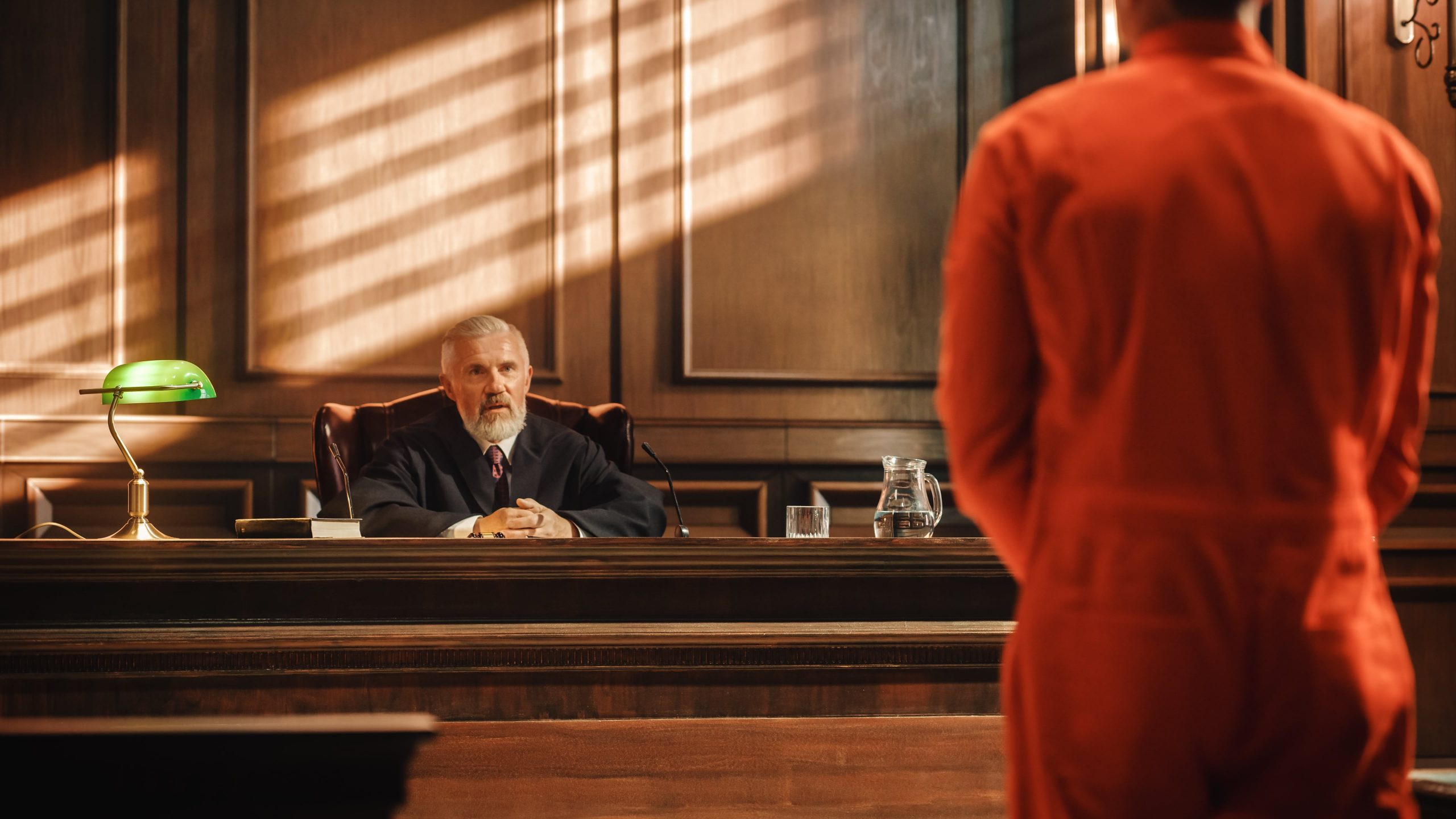If you or your loved one is suffering from mental health and facing criminal charges in New South Wales, call our friendly team to arrange a free consultation with our mental health defence lawyers in Sydney to find out if the charges can get dropped early or dismissed in court on grounds of mental health.
Our leading criminal defence lawyers hold an exceptional track record in getting outstanding results for over two decades in representing defendants facing serious criminal charges while suffering mental health issues.
Our team includes instructing the most knowledgeable and experienced top-performing QC or Senior Counsel barristers who specialise in mental health defences involving serious criminal charges.
Read the below for an outline of all the available mental health defences.
Types Of Mental Illness Defences
Anyone suffering from a mental health or cognitive impairment who is also facing criminal charges in the Local Court may apply to the Magistrate in court to have the charges dismissed where the defendant is discharged with or without conditions. The effect of this will mean no criminal conviction against the defendant’s name because it is a diversionary pathways.
This diversionary pathway is called a section 14 application on grounds of mental heath and only applies to local court criminal proceedings involving summary or indictable offences dealt with in the local court. It was once commonly called a section 32 mental health application.
A person charged with a criminal offence will not be criminally responsible for a crime he or she committed if, at the time of committing it, he or she was suffering from a mental health impairment or a cognitive impairment caused that had caused that person to either not know the nature and quality of the offending act or did not know that the act was wrong at the time.
This will result in an acquittal with a ‘special verdict of act proven but not criminally responsible’. The court may then either order conditional or unconditional release from custody, or order that he or she be detained in a mental health facility until released by due process of law.
If detained in a mental health facility on a ‘special verdict of act proven but not criminally responsible’, he or she becomes a ‘forensic patient’ and will be subject to reviews by the Mental Health Review Tribunal. The Tribunal will continue to supervise the forensic patient when he or she will continue to be detained until and unless the Tribunal orders his or her release, which potentially may never occur.
This defence is usually used for serious crimes such as murder and other serious assaults. This defence can be found in s38 Mental Health (Forensic Provisions) Act 1990.
Automatism is the criminal law defence of when a person commits an act without exercising a free choice in committing it while being unaware of the nature of it. In a nutshell, automatism is an involuntary act. An involuntary automatism act can be either an insane automatism or sane automatism.
These automatism defences, commonly known as mental health defences, can apply to almost all criminal charges in New South Wales. These defences may result in charges being withdrawn early or the defendant acquitted, beating the charges.
A person who commits a criminal act involuntarily from a state of automatism cannot be held responsible for the crime.
Insane automatism is an involuntary act caused by a disease of the mind causing a defect of reason from an underlying mental infirmity that is prone to recur. This can include psychotic episode from a psychotic disorder, intellectual disability, dementia or bipolar disorder.
Sane automatism, in contrast, is also an involuntary act that is not caused by a disease of the mind, and one which is not prone to recur, but is caused by an extraordinary external factor from a healthy mind. This can include non-self induced intoxication from drugs or alcohol, sleepwalking, epilepsy, or post-traumatic loss of control from head injury.
If a defendant is acquitted due to sane automatism, he or she walks free without any further consequences on a verdict of ‘not guilty’.
If a defendant faced with a criminal charge committed the criminal act involuntarily under a state of insane automatism, he or she will be acquitted with a ‘special verdict of act proven but not criminally responsible’ under the defence of insane automatism. But that person does not necessarily walk free. He or she may be released with or without conditions, or detained in a mental health facility and thereafter subject to reviews by the Mental Health Review Tribunal unless and until the Tribunal decides to order his or her release, which potential may never occur.
If an accused person facing criminal charges is unable to understand the nature of the criminal proceedings to be able to mount a defence or plead to a charge due to mental health or other reasons, then he or she will be unfit to stand trial and unfit to plead to the charges.
An unfit defendant can result in the prosecution being discontinued, or permanently stayed, or being referred to the Mental Health Review Tribunal and detained in a mental health facility for an indeterminate period of time.
The law works in different ways on how to deal with an ‘unfit’ defendant depending on whether the case is in the Local Court, or a higher court (District or Supreme Court) in New South Wales.
Unfit to Plead or Stand Trial in District or Supreme
If a defendant facing criminal charges in the District Court or Supreme Court is found unfit to stand trial or plead to the charges, then unless the prosecution decide to withdraw the charges he or she will be subjected to a ‘special hearing’ to ensure the defendant is acquitted unless it can be proved that the defendant committed the offence on the limited evidence available.
A special hearing will result in one of the following consequences:
(1) A verdict that the defendant committed the offence on the limited evidence available, or
(2) A verdict that the defendant is ‘not guilty’, or
(3) A ‘special verdict of act proven but not criminally responsible’
If found ‘not guilty’, the proceedings come to an end and the defendant walks free.
If a special verdict of act proven but not criminally responsible is returned, then the defendant will be either referred to the Tribunal and undergo reviews for an indefinite period of time or discharged with or without conditions.
If a verdict that the defendant committed the offence on the limited evidence is returned by the special hearing court, the defendant may be detained following the nomination of a limiting term. He or she then becomes a ‘forensic patient’ and will be reviewed by the Tribunal as soon as practicable and then every 6 months thereafter.
Following reviews of a forensic patient by the Tribunal, the Tribunal can make orders as to the patient’s release (conditional or unconditional), or patient’s detention, care or treatment in a mental health facility, correctional centre, detention centre or other place. There reviews can continue for the rest of the patient’s natural life.
A verdict of ‘offence committed on limited evidence available’ results in a finding of guilt but it does not result in a conviction at law. The court can then either impose a limiting term which is the estimated equivalent of an imprisonment sentence that the court would have imposed but for the special hearing had this been an ordinary trial, in which case the defendant will be referred to the Tribunal and may be detained in a mental health facility, or the court may instead impose any other penalty and order it might have done so if the defendant had been found guilty in an ordinary trial if the court determines that it would not have imposed imprisonment.
More on Unfit to Stand Trial in District or Supreme Court
Unfit to Plead or Stand Trial in Local Court
A defendant faced with criminal charges in the local court who is unfit to stand trial or plead due to mental health or other reasons should be discharged from the charges or have the criminal proceedings permanently stayed, effectively discontinuing the criminal prosecution.
There is a right of an accused person not to be tried unfairly. This is the same as a guarantee of a fair trial according to law. There can be no fair trial if a person is unfit to plead or unfit to be tried.
The Local Court Magistrate has the power to permanently or temporarily stay criminal proceedings to prevent an unfair trial if the apprehended defect causing unfairness to the accused is of such a nature that it goes to the root of the proceedings and there is nothing the court can do in the conduct of the trial to relive the unfair consequences.
An alternative remedy for an unfit accused person facing criminal charges in the local court proceedings is to be discharged pursuant to a section 14 mental health application based on a mental health or cognitive impairment.
A person facing a specific intent offence will be acquitted from the charge if he or she were incapable of intending to cause the specific result necessary from the offending act as an element of the offence due to non-self induced intoxication.
A specific intent offence is an offence which requires the prosecution to prove that the accused person had an intent to cause a specific result as an element of the offence in order to prove the charge. Examples of specific intent offence include armed with intent to commit an offence, money laundering, intimidation and murder.
Intoxication can be taken into account as a defence in favour of an accused person facing any other offence (that’s not a specific intent offence) if the intoxication was not self induced at the time of committing the offending act.
More on Intoxication Defences
More on Murder Intoxication Defence
A person can get a murder charge downgraded to manslaughter if on the balance of probabilities that person can prove that at the time of causing death, he or she was substantially impaired, by an abnormality of the mind from an underlying condition, from the capacity to understand events, judge whether the act was wrong, or control him or herself; and if that impairment was so substantial that it warrants murder to be reduced to manslaughter.
This is also known as the partial defence to a murder charge. This defence can only be raised in certain circumstances having already occurred in the trial. To rely on this partial defence to murder, notice must be given to the prosecution within a certain time period.
The abnormality of the mind would have to be a mental health impairment or cognitive impairment.
Speak to one of our senior mental health criminal defence lawyers for realistic and practical advice on your best mental health defence, and how to strengthen it early in your case. Our team of senior lawyers know exactly how to maximise your chances at avoiding a criminal record and guide you onto the right path for a healthier you.
 (02) 8606 2218
(02) 8606 2218












